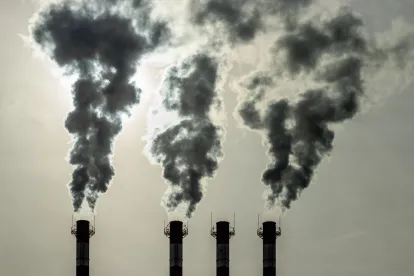On Thursday, March 26, the United States Environmental Protection Agency (“EPA”) announced and issued a Memo establishing an agency-wide temporary enforcement policy suspending or staying a broad array of enforcement efforts for certain environmental regulations and requirements in response to the COVID-19 pandemic. The Memo states that EPA recognizes that “the pandemic may affect facility operations and the availability of key staff and contractors and the ability of laboratories to timely analyze samples and provide results.” In light of this, the Memo states that EPA will “focus its resources largely on situations that may create an acute risk or imminent threat to public health or the environment.” The Memo establishes certain limits on the policy as well as procedures that must be followed – which are different in different circumstances – in order for an impacted regulated entity to qualify for relief under the Policy.
Policy Limitations
- Policy is Temporary. The Enforcement Policy is retroactive to March 13, but it is also temporary. EPA will continue to assess the pandemic situation and at some point will suspend the Policy. It will provide at least seven days’ notice before terminating the policy by posting a notice to its website.
- Policy Exclusions. The Policy does not apply to criminal violations, reporting obligations related to accidental spills and releases, imports, nor to “activities that are carried out under Superfund and [Resource Conservation and Recovery Act (“RCRA”)] Corrective Action enforcement instruments.” This last category will be addressed in a separate, forthcoming memo.
- Case-by-Case Application. In the Memo, EPA carefully reserves its right to exercise discretion under the relevant regulatory schemes on a case-by-case basis. We are seeing this borne out on the ground. For example, the day after the Policy was announced, active cleanup operations at a high profile Superfund site in Colorado were suspended due to COVID-19, while at another high profile site in Oregon, EPA issued two large unilateral orders requiring millions of dollars of cleanup work.
Policy’s Types of Relief and Requisite Procedures
EPA’s enforcement discretion policy is tailored to a variety of different situations, providing different types of relief and establishing different procedural requirements for each. These include:
- Regulatory Compliance. The Policy urges regulated entities to comply to the extent possible. However, if the pandemic makes “compliance not reasonably practicable,” the Memo advises entities to document how the pandemic made it so and return to compliance as soon as possible.
- Civil Violations. EPA “does not expect to seek penalties” for violations of routine compliance monitoring, integrity testing, sampling, laboratory analysis, training, and reporting or certification in situations where COVID-19 was the cause of non-compliance and the regulated entity provides supporting documentation upon request. This includes non-compliance with obligations under administrative settlement agreements with EPA and consent decrees (although courts have jurisdiction to enforce consent decrees), provided that the regulated entity provides notice of non-compliance as required by the agreement.
- Facility Operations that Pose Acute Risks. The Memo specifies procedures for situations where COVID-19 related disruptions to facility operations may create an acute risk or imminent threat to human health or the environment, or where COVID-19 related disruptions may cause the failure of air emission control or wastewater or waste treatment systems. The first and most important step is to consult with the appropriate agency overseeing the facility. Where those procedures are followed, “EPA will consider the circumstances, including the COVID-19 pandemic, when determining whether an enforcement response is appropriate.”
- Hazardous Waste Generators. If a hazardous waste generator cannot transfer waste off-site within regulatory timelines but follows certain procedures specified in the Memo (g., maintaining labeling and storing requirements), EPA will continue to treat the facility as a generator (rather than a treatment, storage and disposal facility). The same is true for Very Small Quantity Generators and Small Quantity Generators that exceed their regulatory volume thresholds.
- Animal Feeding Operations. If such facilities are unable to move animals off-site due to COVID-19, the Memo provides that will not be considered concentrated animal feeding operations (“CAFOs”) if they follow certain specified procedures.
- Public Water Systems. These systems are expected to operate normally, but the Memo sets up tiers of compliance monitoring priorities and states that EPA will “consider the circumstances when considering whether enforcement response is appropriate.”
- Criminal Enforcement. In considering whether to refer matters to the U.S. Department of Justice for criminal enforcement, the Memo states that EPA will distinguish between violations that are unavoidable due to COVID-19 and those that result from an intentional disregard for the law.
While these statements represent a dramatic shift in EPA’s enforcement policies, they are not binding on states implementing federal environmental regulations under delegated authority. Of course, they also are not binding upon states and tribes’ exercise of discretion with respect to their own regulatory programs. Some are already issuing similar policies; some appear unlikely to do so.




 />i
/>i

